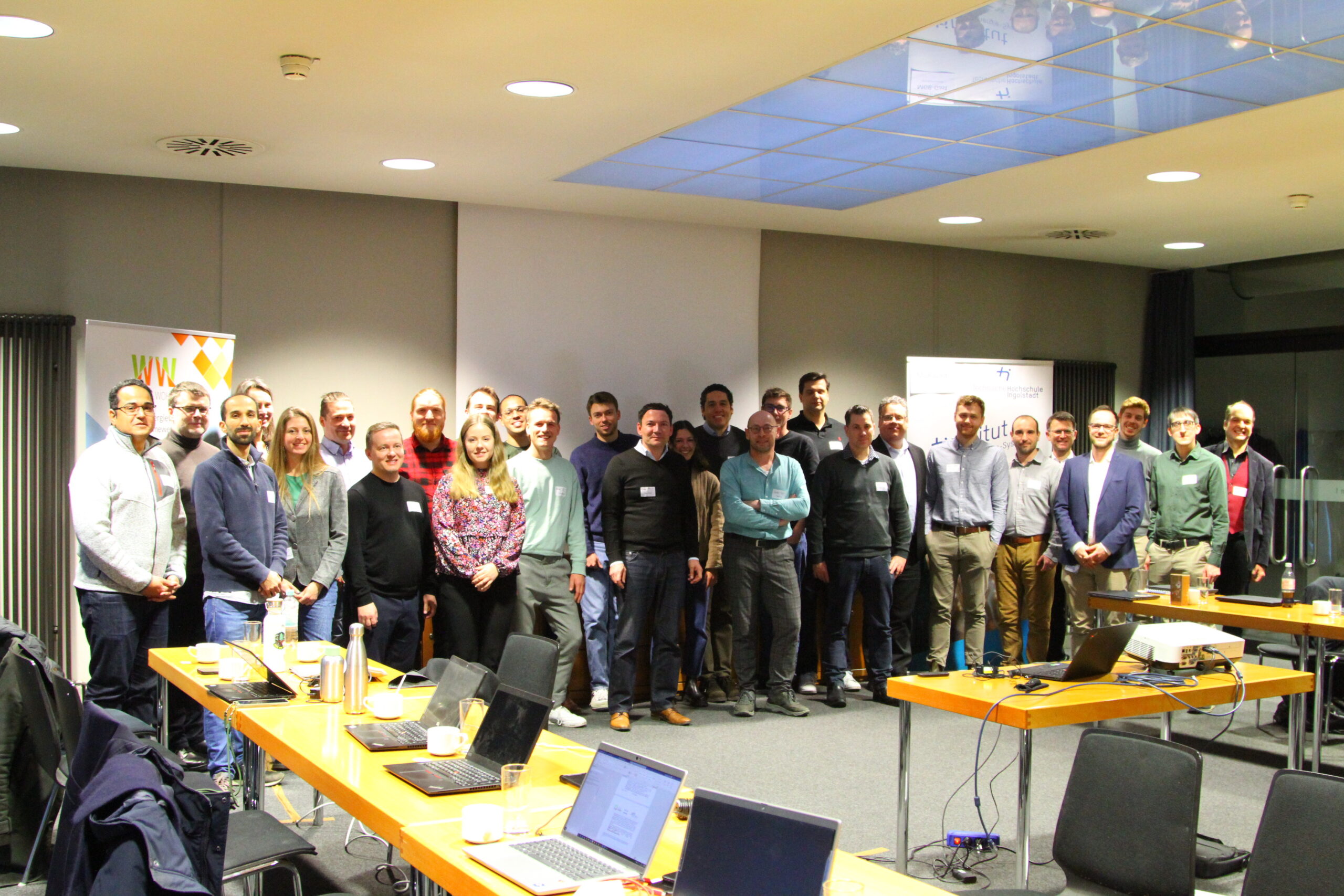
INTERSTORES (International Innovation Network for the Development of Cost- and Environmentally Efficient Seasonal Thermal Energy Storages) is coordinated by the Martin Luther University Halle-Wittenberg (MLU) in Germany and involves 13 organisations from 8 countries from Europe – Germany, France, Netherlands, Finland, Austria, Switzerland, Romania and Serbia. The consortium gathered in Ingolstadt for the Kick-off meeting between January 22nd and 23rd, comprises 5 Academic and Research Technology Organisations, 6 Companies, 1 Non-Governmental Organisation and 1 Public Authority. The project will run from 1st of January 2024 to 28th of December 2027 and has a budget of €11 Million.
INTERSTORES delves into the next generation of seasonal thermal energy storage systems. The project is investigating optimal ways to construct new types of storage systems and integrate them into energy systems. The aim is to improve the utilisation and performance of thermal storage systems, reduce production costs and help the technology reach market maturity.
One major challenge with renewable energy is the ability to store it over a longer time. While regions with a temperate climate have a surplus of energy – especially heat – in the summer, it is in short supply during colder months. “That is why we need simple and cost-effective solutions so that, for example, the surplus energy from the summer can be used in the winter,” explains Professor Peter Bayer, a geoscientist at MLU who is leading the project. The first thermal energy storage systems are already up and running. In one technology type, water is heated using solar energy or waste heat from buildings and industrial plants and stored in large underground tanks. Ideally, there is enough stored energy to last into the winter when it can be utilised for heating.
However, such large-scale thermal energy storage systems are still few and far between. “There are several barriers to tackle, including high investment costs, associated economic risks, and a lack of practical tools for planning and integrating these systems into local heating networks,” says Bayer. INTERSTORES aims to systematically address these issues.
The project strives to demonstrate how large storage systems can be built in a particularly efficient, cost-effective, and environmentally friendly way. The team is investigating two different facilities that will be constructed during the project period. One new plant is being built in a former basin infrastructure in Ingolstadt Germany. At the same time, a huge cavern, which will hold around one million cubic meters of water, is being excavated out of solid rock near Helsinki, Finland.
During the kick-off meeting, partners shared their expectations and plans for the project. Professor Peter Bayer expressed his enthusiasm for the project, stating “By including these two demonstration plants in the project, we have the unique opportunity to investigate the technology at full scale. We want to close critical knowledge gaps to create reliable, functionally robust systems and to obtain practical information for specific implementation projects in the future.”
InoSens will lead WP7 and optimize dissemination activities to ensure sustainability of project results as well as deliver a wide array of communication activities across different target groups using appropriate channels. INO will shape a dissemination and outreach plan accompanied with tailored communication measures, create synergies with relevant initiatives and launch outreach to enable stakeholders to uptake INTERSTORES solutions.
INTERSTORES Project partners
Martin Luther University Halle-Wittenberg (MLU), AIT Austrian Institute of Technology GMBH (AIT), Global Energiesprong Alliance (GEA), GreenFlex (GFX), Geologian Tutkimuskeskus (GTK), IN-Campus GMBH (INC), InoSens doo Novi Sad (INO), Planungsgruppe M+M AG (PGM), Technische Hochschule Ingolstadt (THI), Vantaan Energia OY (VNT), VTT Technical Research Centre of Finland Ltd (VTT), WIZ Development and Services SRL (WIZ), The Lucerne University of Applied Sciences and Arts (HLU).
Contact
✔ Peter Bayer, INTERSTORES coordinator, for more information on the project at peter.bayer@geo.uni-halle.de
✔ Jelena Đokić, INTERSTORES communication manager, to establish any collaboration at dokic@inosens.rs
